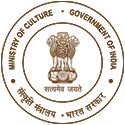An interactive workshop on “Stress Management and Inter-personal Conflict Resolution” was organized for the GSDS staff on July 30, 2018, at Gandhi Darshan. Almost 120 persons took part. The workshop was conducted by Shri Atul Priyadarshi an expert trainer from Patna.
During the workshop, Shri Atul Priyadarshi focussed on different aspects of stress management such as ‘individual stress’, ‘emotional stress’, ‘physical stress’, ‘behavioural stress’ and how that affects the psyche of a person both at the workplace as well as at home.
Basing his training on different concepts, he further suggested various stress management techniques such as:
- Prioritise Your Health
- Get a Good Nights Sleep
- Practice Deep Breathing
- Stay Hydrated
- Eat for Wellbeing
- Get Moving to Combat Stress
- Adopt a Positive Mind Set
- Master Your Time
- Don’t be a Slave to Tech
- Learn to Say No
Analysing stress and the need to resolve it, Shri Priyadarshi spoke of integrity, character, ethics and values that are needed to self-motivate a person.
The second session that was conducted by Shri Atul Priyadarshi was on managing “Interpersonal Conflict”, where through games and meditation the concept of ‘unity’ was reiterated. Concepts such as “Learn how to use parts of the conflict resolution process to recognize and prevent conflict before it escalates”; “Develop communication tools such as agreement frames and open questions” and “Learn practical anger and stress management techniques” were taken up during the workshop.
Through a game, he stressed on the concept of “Win-Win” situation at the workplace which is also applicable to team building.
Earlier Shri Dipanker Shri Gyan, Director GSDS welcomed the gathering and briefed about the training programme which he felt was much needed in today’s world. Later at the concluding session of the day-long workshop, Shri Dipanker Shri Gyan stated that “Stress is directly proportional to performance” and that management of the stress is the key factor for good performance.












